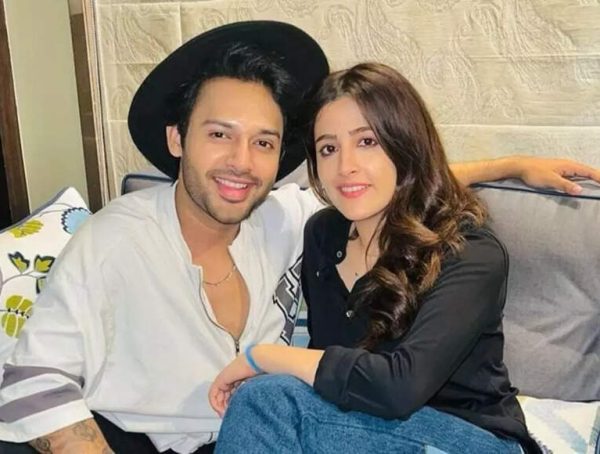Vulnerability can be a terrifying and beautiful thing, one that’s pretty much required of anyone who desires to forge and maintain meaningful relationships in life (sorry to my avoidants). But there is such a thing as too much too soon when it comes to baring your soul, and that thing is called “floodlighting.”
Coined by Brené Brown, author of The Power of Vulnerability: Teachings of Authenticity, Connections and Courage, floodlighting is the practice of oversharing deeply personal information in a way that may seem vulnerable but can actually have the exact opposite effect, functioning as more of a defense mechanism to protect the oversharer from true vulnerability. Lately, the term has been making headlines, morning shows, and reddit threads as a toxic dating trend in which floodlighters unload intense info early on in an attempt to force a connection or create a false sense of intimacy with a potential new partner.
In some ways, floodlighting is reminiscent of what Carrie Bradshaw once called being “emotionally slutty” after dumping the details of her latest breakup on her new crush. But while we’ve all found ourselves stumbling into emotionally slutty territory after a few too many drinks or a too-recent heartbreak, there’s a difference between toxic floodlighting and accidentally revealing a little too much too soon.
“It’s not sharing in and of itself that’s problematic; it’s sharing a lot early on to force a connection that’s the issue,” says therapist Marisa T. Cohen, PhD, a relationship expert at dating app Hily. “It’s the motivation behind the sharing that matters.”
What Is Floodlighting in Dating?
In a dating context, floodlighting happens when one person shares emotionally intense or vulnerable information in an attempt to fast-track a connection. Basically, they’re using an overdose of vulnerability as a shortcut to intimacy.
“This can be problematic, as intimacy requires reciprocity and vulnerability takes time,” says Cohen, adding that floodlighting also puts the person on the receiving end of this emotional deluge in an unfair position in which they may feel pressured to overshare themselves.
On a recent episode of On Air With Ryan Seacrest, cohost Sisanie explained that examples of floodlighting may include “someone you just met suddenly sharing details about a painful breakup, family issues, or past traumas, making you feel obligated to comfort them” or even hard launching their therapy diagnoses to the tune of “I have a history of abandonment, and I need to know you won’t leave me.”
A floodlighter may or may not be aware of the actual motivations behind this behavior, but it’s still a manipulative tactic even if it’s not consciously or intentionally deployed with manipulation in mind.
Essentially, you might compare floodlighting to a kind of love bombing, except instead of lavishing you with gifts and affection to accelerate a relationship, a floodlighter lays on the childhood trauma and deep convos to create a facade of instant intimacy.
Some daters might also use floodlighting as a kind of test to see whether a potential love interest can “handle” them and their baggage, which is…also not great!
Is Floodlighting Always Toxic?
Again, there’s a difference between floodlighting and plain old oversharing. Cohen says people may share a lot with a date or prospective partner early on for a number of (nontoxic) reasons, including that fact that some people are just naturally more open and forthcoming. For others, it may be a case of first-date nerves, rushing to fill or avoid awkward silences, or other manifestations of ultimately benign social anxiety.
Oversharing crosses into potentially toxic floodlighting territory, however, when someone is divulging a lot of intense, traumatic, or emotionally charged information in a way that can make the other person feel uncomfortable or pressured to respond in kind, and failing to read those cues.
And even if the floodlighting works and the person on the receiving end does feel like getting vulnerable themselves in a way that seems to forge an instant connection, it’s still not necessarily a good thing. Again, floodlighting isn’t real vulnerability and the intimacy it creates isn’t real intimacy—it’s a shortcut.
This is not to say that the “Oh my gosh, I feel like I’ve known this person my whole life/can tell them everything” feeling after a particularly great first date isn’t real. It absolutely can be, and that can be a great foundation on which to build actual intimacy—gradually.
“People tend to open up over time as they feel more secure in the connection and build trust,” says Cohen, adding that the pacing and timeline looks different for every couple. But overall, Cohen says it’s important for the intimacy of the relationship to develop organically. Rather than forcing deep conversation to create the connection, we should allow that depth to come from the connection itself as it evolves.
More from LIVE and Trending Now
RJ Mahvash Lavishes Praise On Yuzvendra Chahal Amid Dating Rumours, Calls Punjab Kings Player ‘Great, Most Caring Person’
Yuzvendra Chahal and RJ Mahvash have been rumoured to be dating shortly after the cricketer's divorce was finalised with …
Is being good with pets a green flag? Relationship expert shares how this may be the new love language
When you are on a dating app and swiping through profiles, have you come across one that …
Stebin Ben shuts down dating rumours with Nupur Sanon, says their bond is purely platonic: ‘Yes, I am single’ | Hindi Movie News
Singer Stebin Ben has officially addressed long-standing speculation about his relationship with Nupur Sanon, and fans hoping …






























